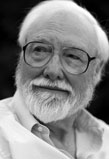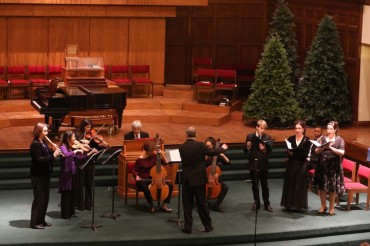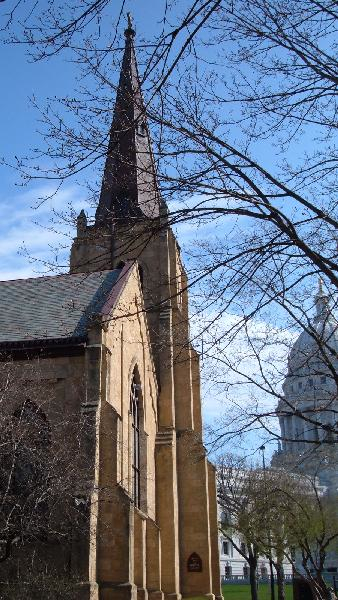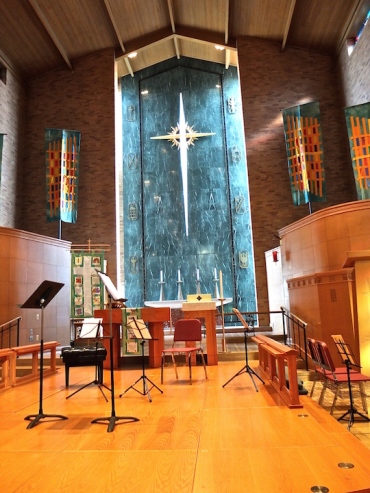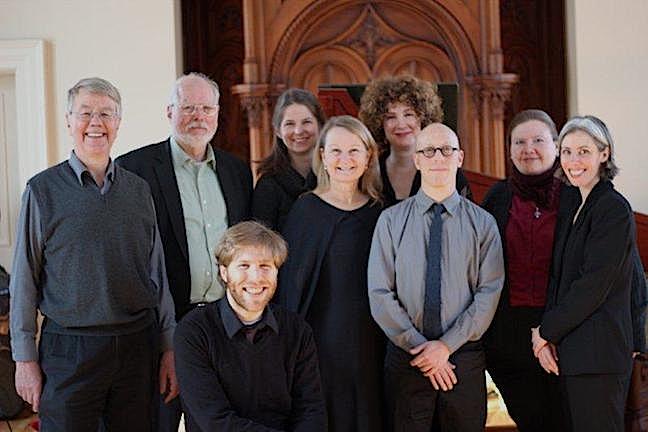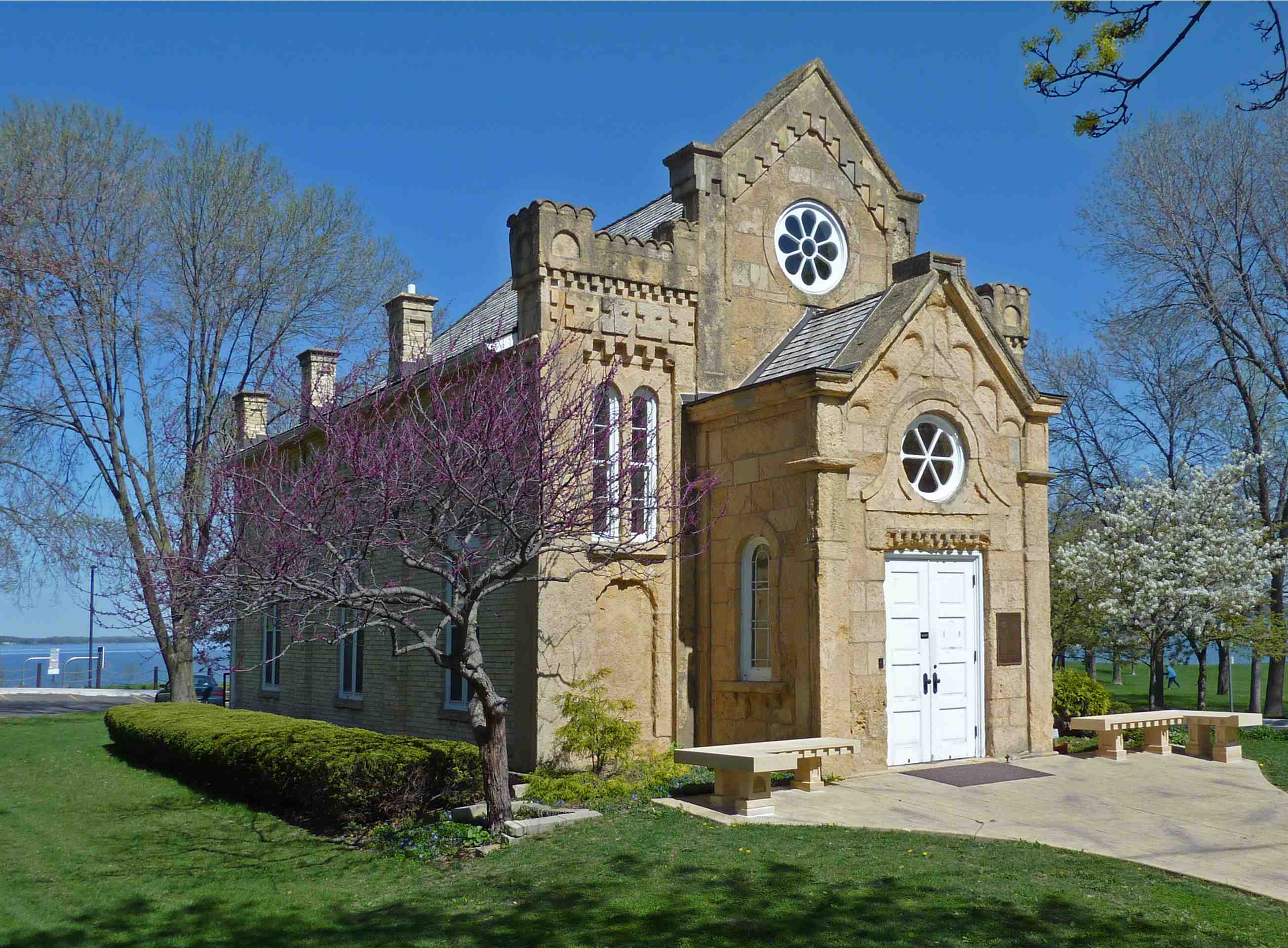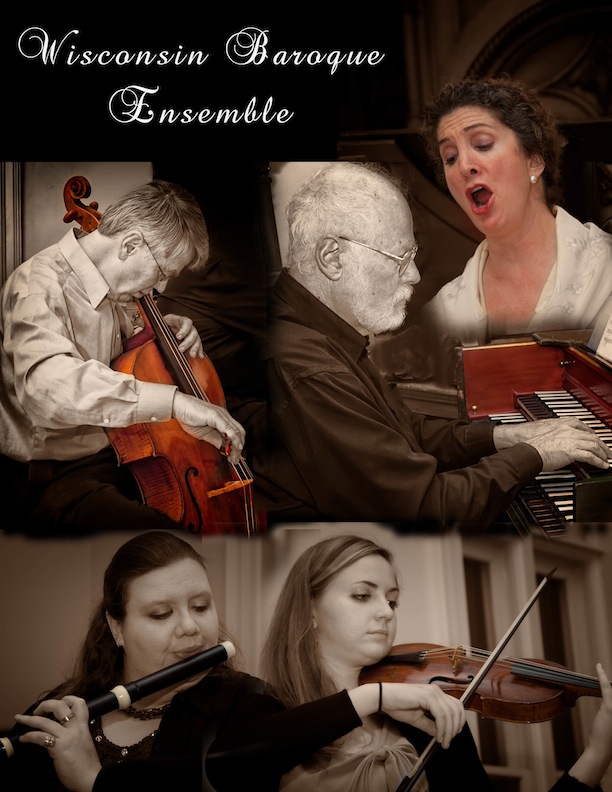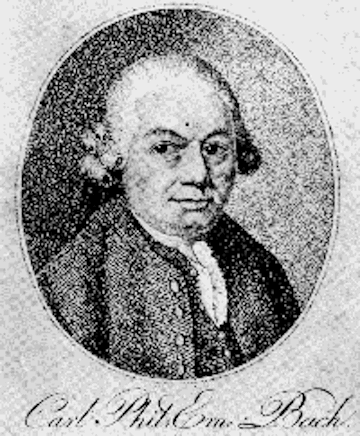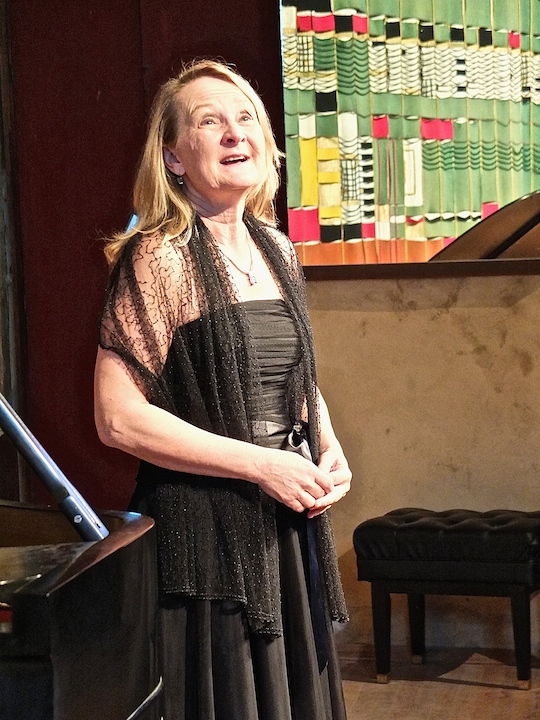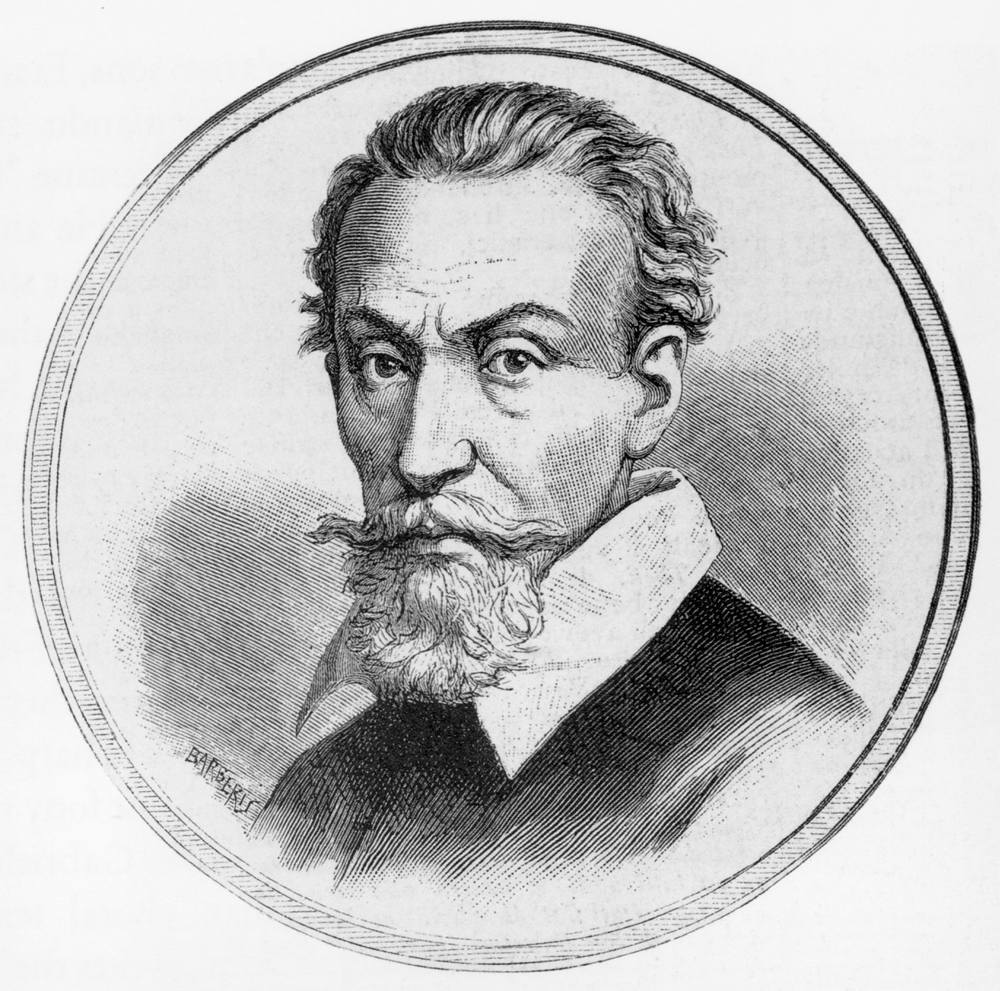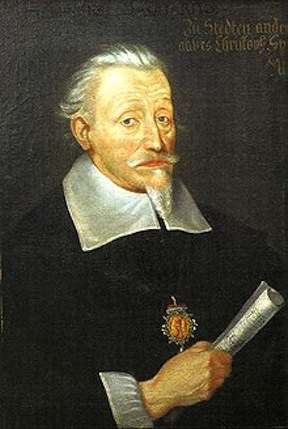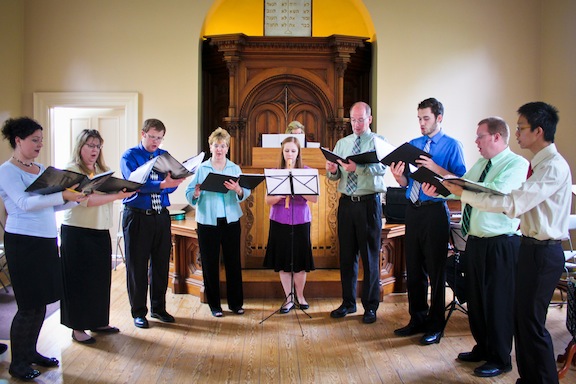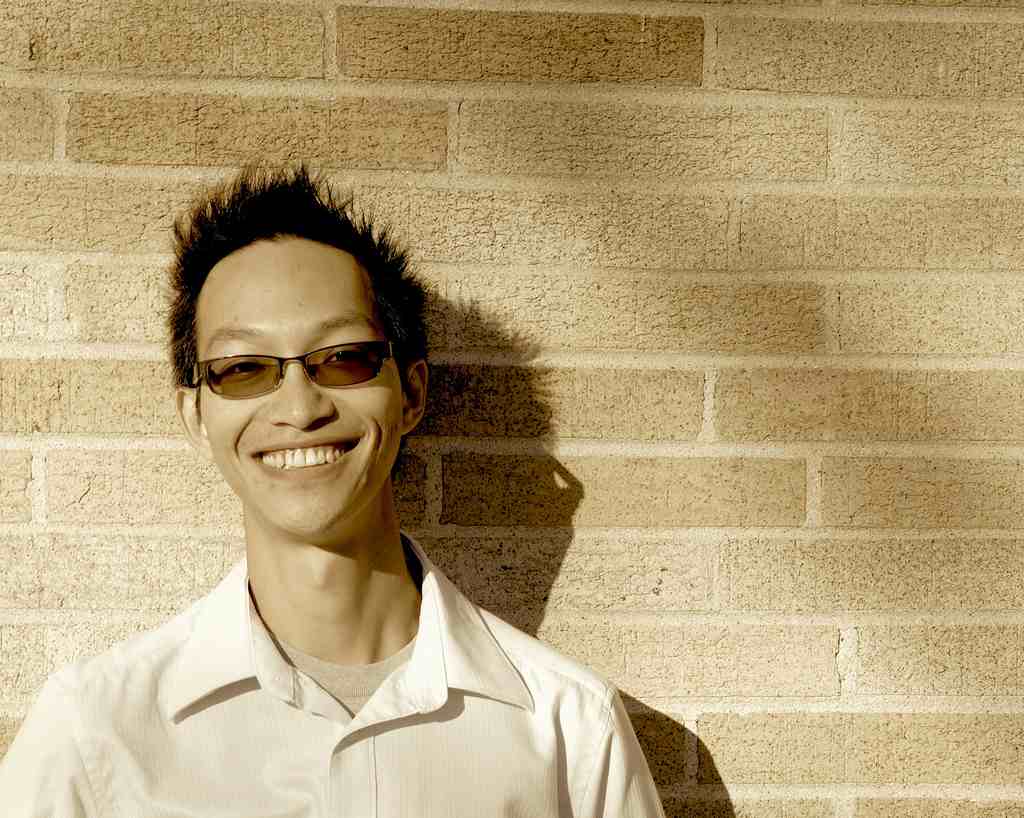The Well-Tempered Ear
The Willy Street Chamber Players give a free virtual concert this Sunday at noon. It will be posted until Dec. 31
Leave a Comment
PLEASE HELP THE EAR. IF YOU LIKE A CERTAIN BLOG POST, SPREAD THE WORD. FORWARD A LINK TO IT OR, SHARE IT or TAG IT (not just “Like” it) ON FACEBOOK. Performers can use the extra exposure to draw potential audience members to an event. And you might even attract new readers and subscribers to the blog.
By Jacob Stockinger
The Ear has received the following announcement from The Willy Street Chamber Players (below), a relatively new group that is critically acclaimed for both its adventurous and eclectic, exploratory programming and for its outstanding performances of both the traditional repertoire and new music.
The Willy Street Chamber Players (WSCP) will play a virtual online concert this Sunday, Nov. 15, at noon CST.
Access to the “Beyond the Screen” concert is FREE and no registration is required. It will be available for free online until Dec. 31 on the group’s website. Here is a link to YouTube: https://youtu.be/j5Ved4FqYSQ
Listeners can visit the WSCP website or Facebook page Sunday at concert time for links to the 70-minute performance. Here is a link to the home website: http://www.willystreetchamberplayers.org
The dynamic WSCP program was recorded live, with masks and social distance, at the historic Gates of Heaven Synagogue (below, exterior and interior during the taping) in James Madison Park in downtown Madison.
The concert will premiere on Facebook live and YouTube, providing two ways to watch from the comfort and safety of your own home.
Members of WSCP will be on hand to interact with viewers in real time through the Facebook and YouTube virtual chat during the performance. They will provide spoken program notes.
Then, immediately following the concert, you can join WSCP members for a Q&A “reception” on ZOOM at 1:15 pm.
The concert program is:
Sonata for Violin and Cello (1922) by French composer Maurice Ravel (below)
“Allegro,” the first of Four Pieces for Solo Cello (1983) by Cuban-born composer Tania León (below), which you can hear in the YouTube video at the bottom.
https://en.wikipedia.org/wiki/Tania_León
Canción de Cuna Del Niño Negro (Cradle Song of the Black Baby, 1937) by Cuban composer Amadeo Roldán y Gardes (below), as arranged by Rachel Barton Pine.
https://en.wikipedia.org/wiki/Amadeo_Roldán
“Heart O’ the Hills” from Appalachian Duets, Op. 38, No. 8 (2001) by American composer Maria Newman (below), who is the youngest daughter of famous Hollywood film composer Alfred Newman.
https://en.wikipedia.org/wiki/Maria_Newman
Duo for Violin and Cello, Op. 7 (1914), by Hungarian composer Zoltan Kodaly
Tags: #AlfredNewman, #AmadeoRoldányGardes, #AmericanComposer, #AppalachianDuets, #BlogPost, #BlogPosting, #ChamberMusic, #CityofMadison, #ConcertProgram, #CoronavirusPandemic, #CradleSong, #CriticalAcclaim, #CriticallyAcclaimed, #Cubancomposer, #FacebokPosting, #FacebookPage, #FacebookPost, #FacebookPosting, #FilmMusic, #Frenchcomposer, #GatesofHeavenSynagogue, #HomeWebsite, #HungarianComposer, #JacobStockinger, #JamesMadisonPark, #LiveMusic, #MariaNewman, #MauriceRavel, #MovieMusic, #NewMusic, #OnlineConcert, #ProgramNotes, #RachelBartonPine, #RealTime, #RecordedMusic, #SocialDistance, #StringMusic, #TaniaLeon, #TheEar, #TraditionalRepertoire, #VirtualConcert, #WillyStreetChamberPlayers, #WomenComposers, #YouTubevideo, #ZoltanKodaly, #ZoomMeeting, acclaim, adventurous, Alfred Newman, allegro, Amadeo Roldán y Gardes, America, American composer, announcement, Appalachia, arrangement, baby, beyond, black, blog, cellist, Cello, Chamber music, chat, comfort, composer, Concert, coronavirus, cradle song, Cuba, Cuban, daughter, December, downtown, duo, dynamic, eclectic, exploratory, explore, exterior, Facebook, Facebook page, famous, film music, forward, France, free, French, Gates of Heaven Synagogue, group, historic, Hollywood, Home, home website, Hungarian, Hungary, interact, interior, Jacob Stockinger, James Madison, James Madison Park, Jew, Jewish, Kodaly, like, link, live music, lullaby, Madison, Maria Newman, mask, Maurice Ravel, member, movie, movie composer, New Music, noon, November, online, oral, outstanding, page, pandemic, Park, performance, piece, play, post, program, program notes, programming, Q&A, Rachel Barton Pine, Ravel, real time, reception, recorded, registration, relative, repertoire, repertory, require, RSVP, safety, screen, share, social distance, Sonata, song, spken, string, string music, Sunday, synagogue, tag, Tania Leon, taped, taping, The Ear, traditional, Tye Ear, viewer, Violin, violinist, virtual, visit, watch, Website, Willy Street Chamber Players, Wisconsin, women, women composer, women composers, young, YouTube, Zoltan Kodaly, Zoom
Classical music: Hearing Bach and Haydn on a clavichord proves intimate and revelatory. Plus, a FREE trombone recital is tonight and an organ recital on Sunday afternoon
Leave a Comment
ALERT 1: Tonight at 8 p.m. in Mills Hall, UW-Madison trombonist Mark Hetzler will give a FREE recital with pianist Vincent Fuh. Hetzler will perform a retrospective of pieces he has recorded over the past 14 years, representing five different recordings. Music from the following recordings from his Summit catalogue will be represented in this recital: American Voices (2002); Serious Songs, Sad Faces (2003); 20th Century Architects (2004); Three Views (2012); and Blues, Ballads and Beyond (2015).
Hetzler will repeat this concert on Thursday, Nov. 17 in Fond du Lac, at St. Patrick’s Church, 41 E. Follett Street, as part of the Searl Pickett Chamber Music Series.
For more information go to: http://www.markhetzler.com/
ALERT 2: Tomorrow afternoon, Sunday, Nov. 13, at 4 p.m., Dan Broner, the music director at the First Unitarian Society of Madison, will give a FREE organ recital at the FUS Meeting House, 900 University Bay Drive. The program features the Trio Sonata No. 4 in E minor, “Sleepers Wake!” and the Prelude and Fugue in A major by Johann Sebastian Bach; Prelude, Fugue and Variations by Cesar Franck; and “Dorian Chorale” and “Litanies” by Jehan Alain. Donations will be accepted.
By Jacob Stockinger
Here is a special posting, a review written by frequent guest critic and writer for this blog, John W. Barker. Barker (below) is an emeritus professor of Medieval history at the University of Wisconsin-Madison. He also is a well-known classical music critic who writes for Isthmus and the American Record Guide, and who hosts an early music show once a month on Sunday morning on WORT-FM 89.9 FM. For years, he served on the Board of Advisors for the Madison Early Music Festival and frequently gives pre-concert lectures in Madison. He also took the performance photos.
By John W. Barker
The clavichord was an instrument of subtle importance in the 18th century. It was a kind of alternative to the harpsichord in several ways. For one, its strings were not plucked, as in a harpsichord, but hammered, as in its descendants, the fortepiano and the subsequent pianoforte or just plain piano.
The clavichord, moreover, was really an instrument for private use, for practice, study and composing work, rather than for concert use, beyond the most intimate of audiences. (You can hear a sample, using J.S. Bach’s Partita No. 2, in a YouTube video at the bottom.)
Local builder and restorer, Tim Farley has made several clavichords before, but this one is a relatively large one. Notable is its incorporation of wood from a number of old pianos, and some rare maple wood that had been submerged in water for a long time. Out of these elements he has created an instrument of great beauty and elegance, as well as of distinctive artistic usefulness.
To introduce this new instrument to Madison’s musical community, Tim and his wife Renee, the reigning royalty of the remarkable Farley’s House of Pianos on the city’s far west side, chose not to do so in their usual salon, as it is too commodious and not noise-free.
Instead, they brought it to the historic Gates of Heaven Synagogue on Sunday afternoon, Nov. 6. A program of four works was played on it by David Schrader (below), an early music specialist who teaches at Chicago’s Roosevelt University.
An audience of about 45 attended. I suspect many were surprised by how tiny (not tinny!) was the instrument’s sound—much more pale than what they would have expected from a harpsichord. Modest as is the Gates of Heaven hall, it was still a bit larger than ideal. Nevertheless, the audience followed the performance intently, and I heard no complaints from anyone afterwards about inaudibility.
The music chosen was entirely from the 18th century. It began with the Partita No. 5 from Johann Sebastian Bach’s Clavierübung or Keyboard Works. On these terms, we heard it as Bach might have played it himself for his own pleasure—or as a student might do for study.
The two middle works were from the other end of the century. An extended Sonata, K. 330, by Wolfgang Amadeus Mozart would in its time have been played on the fortepiano, or even harpsichord, and sounded rather pallid this way.
But a two-movement Sonata in G minor by Franz Joseph Haydn, full of introspective feeling, worked well on the clavichord as highly personal expression.
Balancing the opening with J. S. Bach was the closing work, a three-movement Sonata in A minor (Wq49), a relatively early work by Carl Philip Emmanuel Bach, his most influential son. C.P.E. Bach was famous as an expressive player, and for music of inward probing.
I had hoped to hear Schrader demonstrate on this new instrument its feature of Bebung, a capacity for quasi-vibrato quivering on sustained notes that the clavichord’s action famously allowed the player to exploit. There was some of that, but Schrader explained that such an effect did not work on many pitches, limiting its possibilities.
Listeners for whom this type of instrument is unfamiliar surely found this program illuminating, while this instrument’s excellence was a further reminder of what craftsmanship Tim Farley (below, seated at the clavichord he built) has brought to Madison.
Tags: American Record Guide, Arts, Bach, ballads, Baroque, blues, Cesar Franck, Chamber music, Chicago, Chorale, Classical music, clavichord, David Schrader, Dorian, Early music, Farley's House of Pianos, fortepiano, fugue, Gates of Heaven Synagogue, harpsichord, History, Isthmus, Jacob Stockinger, Jehan Alain, Johann Sebastian Bach, John Williams, Keyboard, litanies, litany, Madison, Madison Early Music Festival, Mark Hetzler, Medieval, Mozart, Music, organ, partita, Piano, Prelude, Roosevelt University, Sleeps Wake, Sonata, Trombone, United States, University of Wisconsin-Madison School of Music, University of Wisconsin–Madison, variations, Wisconsin, Wolfgang Amadeus Mozart, wood, WORT-FM 89.9, YouTube
Classical music: Let us now praise churches for providing concert venues.
11 Comments
By Jacob Stockinger
The Ear received the following message from a loyal reader and thinks it is worth passing on:
“Dear Ear,
“Two of your recent posts sing the praises of Wisconsin Public Radio.
“May I also suggest that we thank area churches?
“Not only do they provide concert venues for various groups, but their active promotion of music more generally — choirs, organ accompaniment — throughout the year is worth a blessing.
“On Christmas Eve, we went to the First Congregational United Church of Christ (below, in a photo by Kent Sweitzer of the Madison Bach Musicians performing its annual Baroque holiday concert) to hear an abbreviated Nine Lessons and Carols.
“We had the benefit of hymnals and for the first time for me could actually read or sing along with the service. Plus lighting dozens of candles in the darkness and wishing the congregation of the planet peace.”
The Ear couldn’t agree more and is happy to comply.
Quite a few churches or church-like organizations come immediately to mind.
There is the First Unitarian Society of Madison (below) with its FREE Friday Noon Musicales every week and its special concerts:
There is the downtown Luther Memorial Church (below) where University of Wisconsin-Madison choirs hold their annual holiday concert and where the Madison Early Music Festival has performed:
There is Blackhawk Church in Middleton (below) where the Wisconsin Chamber Orchestra holds its annual performances of George Frideric Handel’s oratorio “Messiah”:
There is Grace Episcopal Church (below), on the Capitol Square, which is where the Wisconsin Chamber Choir held its concert this year of various settings of the Magnificat and which hosts the FREE Grace Presents series.
There is the Immanuel Lutheran Church (below), on the near east side, that hosts the Willy Street Chamber Players and the Madison Bach Musicians.
There is the St. Andrew’s Episcopal Church (below) on the near west side, which hosts many different concerts and groups:
There is Holy Wisdom Monastery (below) in Middleton, which holds a variety of concerts and hosts the Bach Dancing and Dynamite Society in the summer.
And even though it is now a landmark building rather than an active place of worship, there is the historic Gates of Heaven Synagogue in James Madison Park, where the Wisconsin Baroque Ensemble performs.
Thank you, all.
The Ear is sure there are many more that he is leaving out.
So he asks readers to please leave the names of other churches and concerts or musical events in the COMMENT section.
Tags: Advent, Arts, Baroque, Blackhawk, Chamber music, Choir, choral music, Christian, Christianity, Christmas, church, Classical music, Concert, Early music, Gates of Heaven Synagogue, George Frideric Handel, Holiday, Jacob Stockinger, Jewish, Johann Sebastian Bach, Judaism, Luther, Madison, Madison Bach Musicians, Madison Early Music Festival, Magnificat, Messiah, Music, Orchestra, organ, synagogue, United States, University of Wisconsin-Madison School of Music, University of Wisconsin–Madison, Viola, Violin, vocal music, Wisconsin, Wisconsin Baroque Ensemble, Wisconsin Chamber Choir, Wisconsin Chamber Orchestra, wisconsin public radio
Classical music: The Wisconsin Baroque Ensemble celebrates the 300th anniversary of C.P.E. Bach in a concert this Saturday night.
Leave a Comment
By Jacob Stockinger
The critically acclaimed and long-lived early music group the Wisconsin Baroque Ensemble (below) — which uses period instruments and historically informed performance practices — will celebrate the 300th anniversary of the birth of Carl Philipp Emanuel Bach this Saturday night. (You can hear a sample of C.P.E. Bach’s appealing music at the bottom in a YouTube video of a Trio Sonata.)
The concert – which includes the work of other rarely performed composers and works — will be at 8 p.m. in the landmark and historic Gates of Heaven synagogue in James Madison Park, at 300 East Gorham Street, in downtown Madison.
Members of the Wisconsin Baroque Ensemble include Brett Lipshutz – traverso, recorder; Eric Miller – viola da gamba, baroque cello; Consuelo Sañudo – mezzo-soprano; Monica Steger – traverso flute, recorder, harpsichord; Anton TenWolde – baroque cello; and Max Yount – harpsichord.
Tickets at the door are $20, $10 for students). Feel free to bring your own chair or pillow.
For more information, call (608) 238-5126 or visit www.wisconsinbaroque.org.
Here is the complete program for “Celebrating C.P.E. Bach”:
1. Carl Philipp Emanuel Bach (below, 1714-1788) – Trio Sonata in d-minor Wq 145
2 Michel Pignolet de Montéclair (1667-1737) – “L’Amour vangé
3. Pieter Hellendaal (1721-1799) – Sonata No. 1 for the violoncello and the thorough bass.
4. Johann Philipp Kirnberger (1721-1783) – Sonata No. 8 for traverso and basso continuo
INTERMISSION
5. Louis-Gabriel Guillemain (1705-1770) – Sonata in Quartet No. 3, opus 12 (1743)
6. Carl Philipp Emanuel Bach – Sonata for viola da gamba and basso continuo, Wq 88/H 510 (1759)
7. Carl Philipp Emanuel Bach – Six New Keyboard Pieces, from the supplement to “Versuch über die wahre Art das Clavier zu spielen,” 3rd edition (Leipzig, 1787). Sonatina I in G Major: Allegro, Wq 63/7; Sonatina V in F Major: Andante, Wq 63/11; Sonatina III in D Major: Allegretto, Wq 63/9
8. Juan Hidalgo de Polanco (1614-1685) ”Quedito, Pasito”
Tags: Arts, Bach, Baroque, Baroque music, C.P.E. Bach, Carl Philipp Emanuel Bach, Cello, Chamber music, Classical music, Early music, flute, Gates of Heaven, Gates of Heaven Synagogue, harpsichord, Hellendaal, Historically informed performance, historically informed performance practices, Jacob Stockinger, Kirnberger, Madison, Mezzo-soprano, Montéclair, Music, period instruments, Polanco, recorder, Sonata, Tempo, traverso, trio, trio sonata, viola da gamba, Violin, vocal music, voice, Wisconsin Baroque Ensemble, YouTube
Classical music: The Wisconsin Baroque Ensemble offers early music rarities with verve and polish. Plus, TONIGHT at 7:30 p.m. native daughter violist Vicki Powell solos with the Middleton Community Orchestra
Leave a Comment
ALERT: A reminder that Madison-born Vicki Powell, who trained at the UW-Madison School of Music, the Curtis Institute and the Juilliard School and who plays with the New York Philharmonic and other major groups, will perform two solos TONIGHT at 7:30 p.m. at the season-opening concert by the largely amateur but very good Middleton Community Orchestra, under conductor Steve Kurr.
The place is the Middleton Performing Arts Center that is attached to Middleton High School, 2100 Bristol Street, not far off of University Avenue.
On the programs is the Overture to “William Tell” by Rossini, the Fantasy for Viola and Orchestra by Johann Nepomuk Hummel, the Romance for Viola and Orchestra by Max Bruch and the Symphony No. 8 by Antonin Dvorak. Tickets are $10; all students get in for FREE. A meet-and-greet reception for the players and audience members follows the concert.
Here is a link to the Q&A with violist Vicki Powell that The Ear posted last week:
By Jacob Stockinger
Here is a special posting, a review written by frequent guest critic and writer for this blog, John W. Barker. Barker (below) is an emeritus professor of Medieval history at the University of Wisconsin-Madison. He also is a well-known classical music critic who writes for Isthmus and the American Record Guide, and who for 20 years hosted an early music show every other Sunday morning on WORT FM 89.9 FM. He serves on the Board of Advisors for the Madison Early Music Festival and frequently gives pre-concert lectures in Madison.
By John W. Barker
The Wisconsin Baroque Ensemble (below top) launched its new season in Madison last Sunday afternoon, not at its usual venue (Gates of Heaven Synagogue), but at St. Andrew’s Episcopal Church (below bottom).
The different location contributed to an enlargement of instrumental colors this time. Max Yount not only worked the harpsichord, but made good use of the church’s handsome Baroque organ in the numerous continuo functions.
In addition, Eric Miller (below) extended from his viola da gamba to show his new talents on the cornetto, while Theresa Koenig moved gracefully between dulcian (early bassoon) and recorders, and Monica Steger alternated on flute and recorder.
The frequent vocal collaborators, UW-Madison soprano Mimmi Fulmer (below top, seen at the Hillside Theater at Frank Lloyd Wright’s compound Taliesin in Spring Green) and mezzo-soprano Consuelo Sañudo were on hand, and patriarch Anton TenWolde (below bottom) on cello completed the group of seven performers.
Two of the nine composers represented — the German Johann Sebastian Bach (1685-1750) and the Swede Johan Helmich Roman (1694-1758) — stood apart as almost chronological afterthoughts, though Roman’s sonata for flute and continuo was given a predictably rousing rendition by Steger.
Otherwise, the focus was on music of the 17th century, especially its very early epoch. Miller gave us gamba renditions of Giovanni Bassano’s variations on a popular madrigal by Cipriano de Rore (1515-1565), two training pieces by Christopher Simpson (1602-1669), and an unaccompanied solo by the enigmatic Sainte-Colombe (1640-1700). (An entrancing sample of solo viol music by Sainte-Colombe is in a popular YouTube video at the bottom.)
Koenig presented a sonata for dulcian and continuo by Giovanni Antonio Bertoli (1598-1645), then joining Steger on recorders for a duo sonata by Giuseppe Scarani of the mid-17th century.
On the vocal side, the two singers joined in an impressive cycle of eight Italian duets, with continuo, by Sigismondo d’India (1582-1629). In these, D’India, an epigone of Claudio Monteverdi (below), contrived writing of individual elaborateness for each singer while also ingeniously integrating their parts.
Vocal music returned at the end, too, when Sañudo, joined by all the players, sang the opening aria of Bach’s Cantata 161, and then the two singers and almost all the players came together for an early carryover by Heinrich Schütz (below, 1585-1672) from his Italian training, a moralizing madrigal in German for two voices, two melody instruments, and continuo, which made a richly satisfying conclusion to the program. It was in these two last vocal works, too, that Miller forsook his gamba and took up his cornet.
What can we say? After some 17 years, the WBE is still going strong, offering us annual presentations of mostly rare Baroque chamber works, in elegant performances in intimate venues. They are the trailblazers in Madison’s early music scene, and they remain a vital component of that scene.
Tags: American Record Guide, Antonín Dvořák, Arts, Bach, Baroque, Bruch, Cantata, Cello, Chamber music, Christopher Simpson, Classical music, Claudio Monteverdi, Curtis Institute of Music, Dvorak, Early music, Gates of Heaven Synagogue, Giovanni Bassano, Hummel, Jacob Stockinger, Johann Nepomuk Hummel, Johann Sebastian Bach, John W. Barker, Juilliard School, Madison, Middleton Community Orchestra, Middleton High School, New York Philharmonic, Rossini, Singing, Sunday, University of Wisconsin-Madison School of Music, University of Wisconsin–Madison, Viola, Violin, vocal music, William Tell, Wisconsin, Wisconsin Baroque Ensemble
Classical music: The Wisconsin Baroque Ensemble will explore vocal music of the 16th and 17th centuries this Sunday afternoon at a new venue -– Saint Andrew’s Episcopal Church. Plus, music for trumpet, cello and piano is featured at this week’s FREE Friday Noon Musicale at the First Unitarian Society.
Leave a Comment
ALERT: This week’s FREE Friday Musicale, to be held from 12:15 to 1 p.m. at the First Unitarian Society of Madison, 900 University Bay Drive, will feature “Triple Play” — trumpeter David Miller, cellist Amy Harr and pianist Jane Peckham in music of Eric Ewazon, William Schmidt, and Johannes Brahms. The concert is in the historic Landmark Auditorium.
By Jacob Stockinger
The early music and period instrument group Wisconsin Baroque Ensemble will perform a concert of vocal and instrumental chamber music of largely the 16th and 17th centuries.
PLEASE NOTE: The concert will be performed at 3 p.m. on this Sunday, October 19, at Saint Andrew’s Episcopal Church — That is a change of venue from the usual Gates of Heaven Synagogue in James Madison Park. The church is located at 1833 Regent Street, on Madison’s near west side across from Randall Elementary School.
Performers are UW-Madison professor soprano Mimmi Fulmer; mezzo-soprano Consuelo Sañudo; recorder and dulcian players Theresa Koenig; traverse, recorder and harpsichord player Monica Steger; viola da gamba and cornetto players Eric Miller; baroque cello player Anton TenWolde; and organist and harpsichord player Max Yount.
Works by Scarani, Heinrich Schuetz, d’India, J.S. Bach, Bertoli, and Simpson will be featured.
Tickets at the door only: $20 for the general public, $10 for students.
For more information (608) 238-5126 or info@wisconsinbaroque.org, or visit www.wisconsinbaroque.org.
Here is the complete program: Prelude for Solo Viola da gamba by Monsieur de Sainte-Colombe (ca. 1640–1700); “Ancor che col partire” from “French Motets, Madrigals and Songs” by Giovanniu Bassano (ca. 1561-1617) viola da gamba solo; “Music for Two Voices” (1615) by Sigusmondo d’India (ca. 1582-1629); Sonata for Dulcian and Basso continuo by Giovanni Antonio Bertoli (1598-1645); Sonata XII for Traverse and basso continuo by Johan Helmich Roman (1694-1758); INTERMISSION; Sonata decima quarta a tre, duoi canti e basso by Giuseppe Scarani (1628–1641); Two Divisions for the Practice of Learners by Christopher Simpson (1606–1669); “Komm, du süsse Todesstunde” (Come, Sweet Hour of Death, the tenor aria from which can be heard at bottom in a YouTube video), from Cantata 161 by Johann Sebastian Bach (1685-1750); “Tugend ist der beste Freund,” SWV 442, by Heinrich Schütz (1585-1672).
Tags: Arts, Bach, Baroque, Cantata, Cello, Chamber music, Christopher Simpson, Classical music, Early music, First Unitarian Society of Madison, flute, Friday, Gates of Heaven Synagogue, harpsichord, Heinrich Schütz, Jacob Stockinger, James Madison Park, Johan Helmich Roman, Johann Sebastian Bach, Madison, Mezzo-soprano, Music, Piano, Sonata, soprano, tneor, trio, University of Wisconsin-Madison School of Music, University of Wisconsin–Madison, Viol, vocal music, Wisconsin, Wisconsin Baroque Ensemble, YouTube
Classical music: Two concerts of New Music and Early Music by three local groups will both take place on the Saturday of this very busy weekend.
6 Comments
By Jacob Stockinger
This is a crazy busy weekend for classical music fans in Madison.
On Friday night at 8 p.m. in the Capitol Theater of the Overture Center, the Wisconsin Chamber Orchestra closing out its season with pianist Stewart Goodyear playing his own Piano Concerto and Ludwig van Beethoven’s “Choral” Fantasy (plus the “Eroica” Symphony) on Friday night.
On Friday night at 8 p.m. in Mills Hall is also the University of Iowa Center for New Music in a FREE concert.
Also on Friday night at 7:30 p.m. in Music Hall is the University Opera’s first of three performances of Hector Berlioz’ opera “Beatrice and Benedict.” It is the farewell production of director William Farlow, who is retiring this spring.
Then on Saturday at 3:30 p.m. in Morphy Hall is the University of Wisconsin-Madison School of Music’s Perlman Piano Trio, in a FREE concert of Franz Joseph Haydn, Franz Schubert and Antonin Dvorak. At 8 p.m. in Mills Hall is the UW-Madison Concert Choir and Chamber Orchestra performing Johann Sebastian Bach’s “St. John Passion” under conductor and director Beverly Taylor.
And on Sunday at 10 a.m. and 3 p.m. is the First Unitarian Society of Madison performing Gabriel Faure’s lovely and calming Requiem. Admission is FREE and open to the public. And the on Sunday evening at 7 p.m., the UW Chorale Concert, under Bruce Gladstone, will perform a FREE concert in Mills Hall.
BUT…
But two concerts on Saturday by smaller local groups presenting old music and new music should also not be overlooked.
On Saturday afternoon at 1 p.m. in Luther Memorial Church (below) at 1021 University Avenue, there is a FREE concert featuring new music by two local groups.
“New Music Concert and Conversation” is FREE and OPEN TO THE PUBLIC and features new works for the percussion group Clocks in Motion (below top) and the woodwind quintet Black Marigold (below bottom) by student composers across the country. Two of the four winning composers will be in attendance to speak about their work and answer questions from the audience.
Immediately following the performance, Clocks in Motion and Black Marigold members will speak about the challenges and rewards of performing new music.
The New Music Concert is part of the 18th annual conference of the Midwest Graduate Music Consortium (MGMC), which will take place at UW-Madison on April 11 and 12. MGMC is a joint venture organized by graduate students from Northwestern University, the University of Chicago, and UW-Madison. MGMC encourages the presentation of original research and the composition of new music by graduate and advanced undergraduate students.
Details about the conference, including a full schedule and list of abstracts, can be found at the MGMC website. The conference includes papers by students from MGMC sister schools and institutions across the U.S. and Canada. Tamara Levitz, UCLA, will give a keynote lecture, “Riot at the Rite: Racial Exclusion and the Foundations of Musical Modernism.” Registration is FREE. Please send an email to kahiser@wisc.edu or mgmc2014conference@gmail.com if you plan to attend. (No registration is necessary for the New Music Concert).
The program includes:
Works for Clocks in Motion:
Kristina Warren, University of Virginia . . . Adelaide
Benjamin O’Brien, University of Florida . . . cadenceStudie
Works for Black Marigold (below):
Kenn McSperitt, University of Oklahoma . . . Eight
Matthew R. Durrant, University of Utah . . . Quintet No. 2
Then on Saturday night at 8 p.m. in the historic Gates of Heaven Synagogue (below), located at 300 East Gorham Street, in James Madison Park in downtown Madison, the Wisconsin Baroque Ensemble will perform a concert of vocal and instrumental early music on period instruments.
The program includes:
1. Wilhelm Friedemann Bach – Duet No. 2 for two flutes in E-flat major, F. 55
2. Jean Baptiste Barrière – Cello Sonata No. 3, Book 2
3. Georg Philipp Telemann – Suite 1 from “Six Paris Quartets”
4. Johann Friedrich Fasch – Sonata for bassoon and continuo in C major
INTERMISSION
5. Benoit Guillement – Sonata No. 1 for two traversi
6. Johann Sebastian Bach – “Die Schätzbarkeit der weiten Erde” from cantata BWV 204 (heard at the bottom in a YouTube video featuring violinist Itzhak Perlman and soprano Kathleen Battle.)
7. Carl Friedrich Abel – Sonata a viola da gamba solo et basso, WKO 160.
8. Johann Christian Bach – Quartetto for traverso, violin, viola, and bass.
9. Joseph Bodin de Boismortier – Concerto a cing parties, from Op.37.
Tickets are available only at the door. Admission is $15, $10 for students. Feel free to bring your own chair or pillow. For more information, call (608) 238-5126 or visit www.wisconsinbaroque.org.
Members of the Wisconsin Barqoue Ensemble are: Theresa Koenig – baroque bassoon; Brett Lipshutz – traverse; Mary Perkinson – baroque violin; Consuelo Sañudo – mezzo-soprano; Monica Steger – traverse; Eric Miller – viola da gamba, baroque cello; Anton TenWolde – baroque cello; and Max Yount – harpsichord.
Tags: Antonín Dvořák, Arts, Bach, Baroque, Beethoven, Chamber music, chamber orchestra, choral music, Classical music, concerto, Early music, Fasch, First Unitarian Society of Madison, Franz Schubert, Gates of Heaven Synagogue, Jacob Stockinger, James Madison Park, Johann Christian Bach, Johann Friedrich Fasch, Johann Sebastian Bach, Joseph Haydn, Ludwig van Beethoven, Madison, Metropolitan Opera, Music, New Music, Orchestra, Overture Center, Passion, percussion, Piano, Piano Trio, Quartet, quintet, Requiem, Saturday, Sonata, Telemann, University of Wisconsin-Madison School of Music, University of Wisconsin–Madison, Wilhelm Friedemann Bach, Wisconsin, Wisconsin Chamber Orchestra, woodwind, Woodwind quintet, YouTube
Classical music: The Wisconsin Baroque Ensemble will perform instrumental and vocal early music by Vivaldi, Telemann, Monteverdi and other composers this Sunday afternoon.
Leave a Comment
By Jacob Stockinger
The Wisconsin Baroque Ensemble, the early music group based in Madison, will perform a concert of instrumental and vocal chamber music on Sunday, February 9, at 3 p.m. in the historic Gates of Heaven Synagogue (below), 300 East Gorham Street, in James Madison Park in downtown Madison.
Performers in the Wisconsin Baroque Ensemble include: University of Wisconsin-Madison Mimmi Fulmer, soprano; Consuelo Sañudo, mezzo-soprano; Theresa Koenig, recorder and baroque bassoon; Brett Lipshutz, traverse and recorder; Mary Perkinson, baroque violin; Monica Steger, traverse and recorder; Eric Miller, viola da gamba and baroque cello; Anton TenWolde, baroque cello; and Max Yount, harpsichord.
Tickets at the door only are $15 ($10 for students). Feel free to bring your own chair or pillow. For more information 608-238-5126 or visit www.wisconsinbaroque.org
The program consists of:
1. Louis-Antoine Dornel – Sonate en Quattuor
2. Claudio Monteverdi – “Lamento d’Arianna”
3. Johann Mattheson – Sonata for three recorders, Opus 1, No. 5
4. Georg Philipp Telemann – Sonata 1 from “Six Quatuors” (Paris Quartets) TWV42:A1
INTERMISSION
5. Sigismondo d’India – “Dove potro”
“Chi nudrisce”
6. Michel Corette – Sonata in E minor, Opus 25, No. 4: “Les Amusements D’Appollon Chez Le Roi Admete”
7. Antonio Vivaldi – “Pianti, sospiri”, RV 676
8. Joseph Bodin de Boismortier – “Balets de Village en Trio,” Opus 52, No. 1
Tags: Antonio Vivaldi, Arts, Baroque, Chamber music, Classical music, Claudio Monteverdi, Early music, Gates of Heaven Synagogue, Georg Philipp Telemann, instrumental music, Jacob Stockinger, James Madison Park, Madison, Sunday, University of Wisconsin–Madison, vocal music, Wisconsin, YouTube
Classical music: The early music group Eliza’s Toyes celebrates winter this weekend with two performances of Medieval and Renaissance British vocal music.
1 Comment
By Jacob Stockinger
The Madison-based early music group Eliza’s Toyes (below) will be performing British sacred choral music from the Medieval and Renaissance eras in two performances – one FREE and one with admission — this coming weekend.
Here is a press release from the group:
“Titled “A British Winter,” the performances will take place on Saturday, Jan. 18, at 7:30 p.m. at the Chocolaterian Café, 2004 Atwood Ave.; and again on Sunday, Jan. 19, at 4 p.m. at the historic Gates of Heaven Synagogue (below), 302 East Gorham Street in James Madison Park.
Admission is free on Saturday at the Chocolaterian; tickets are $15 ($10 for students) on Sunday, sold at the door.
For more information about the concert, please visit the website of Eliza’s Toyes at toyes.info, or its Facebook page at facebook.com/elizastoyes.
In this program, Eliza’s Toyes revisits its founding mission of a cappella early music. The musicians who will perform are sopranos Deb Heilert and Chelsie Propst; Sandy Erickson, alto; Peter Gruett, alto/tenor; Jerry Hui (below), tenor/bass; and Mark Werner, baritone.
A vocal sextet will perform music with Latin and English text composed by William Byrd, Robert Fayrfax, Peter Phillips, Thomas Tallis, Thomas Tomkins, and Christopher Tye. A few anonymous pieces likely of British origin are also included.
The choice of composers spans at least 200 years, and highlights the development of polyphonic British music. Tallis (below) in his early age took works of Fayrfax as a model for his own Latin sacred music; Byrd studied with and worked for Tallis; and both Tomkins and Philips were students of Byrd’s.
Here is the complete program of “A British Winter”:
Anon.: Regina caeli (chant)
Anon.: Regina caeli à 3
William Byrd (1540-1623): Memento salutis auctor
Byrd: O magnum mysterium (sung in a YouTube video at the bottom)
Robert Fayrfax (1464-1521): Magnificat “O bone Jesu”
Peter Philips (1560-1628): O beatum et sacrosanctum Diem (1612)
Thomas Tallis (1505-1585): O sacrum convivium (1575)
Christopher Tye (1505-1573): A sound of angels
Tallis: O nata lux (1575)
Thomas Tomkins (1572-1656): Music Divine (1622)
Anon.: Tidings True
Anon.: There is no rose
Byrd: Sing Joyfully (1641)
Among the selection of music is a rarely heard piece, Magnificat “O bone Jesu” by Fayrfax. Likely composed around 1500-1502, it is a setting of Magnificat text whose musical material is based on Fayrfax’s own motet (survived only in fragments). The piece is a fine example of English choral music of its time: polyphonic settings are only written for the even verses, while the odd verses remain as plainchant; and much of the piece features a trio texture, with intricate rhythmic interactions among voices.
Eliza’s Toyes is a Madison-based early music ensemble specialized in performing vocal and wind music from before 1700. Its creative concert programs often feature geographical or narrative themes, partnering with both music and non-music academic fields. Now in its fifth season, Eliza’s Toyes has been performing at least twice a year, in various venues including UW-Madison Memorial Library, the Chazen Museum of Art, and the Gates of Heaven. It has also been featured on Wisconsin Public Radio’s “Sunday Afternoon Live from the Chazen” concert series.
Tags: anonymous, British, British music, Chazen Museum of Art, Choir, choir music, Christopher Tye, Early music, Eliza's Toyes, Gates of Heaven, Gates of Heaven Synagogue, Jacob Stockinger, James Madison Park, Jerry Hui, Madison, Medieval, Peter Philips, Renaissance, Robert Fayrfax, Saturday, Thomas Tallis, Thomas Tomkins, University of Wisconsin–Madison, vocal music, William Byrd, wisconsin public radio, YouTube
Classical music: It’s Homecoming Weekend at the UW-Madison. But the classical music scenes doesn’t miss a beat. The Wisconsin Baroque Ensemble performs the music of Telemann, Monteverdi and Corelli plus other less well-known composers on Saturday night. Plus, the Wisconsin Chamber Orchestra opens its new season tonight at 8 with the Britten “Apollo” and Saint-Saens’ “Egyptian” Piano Concerto No. 5 plus Beethoven’s Fifth Symphony – the best of all Fight Songs for Homecoming football
Leave a Comment
A REMINDER: Going up against both the start of the Madison Symphony Orchestra’s organ series and the University of Wisconsin-Madison Homecoming Weekend won’t be easy. But the Wisconsin Chamber Orchestra shouldn’t be forgotten or dismissed. The WCO opens its new season tonight at 8 p.m in the Overture Center’s Capitol Theater.
On the program, under the baton of the WCO’s longtime music director Andrew Sewell and with guest piano soloist and synesthesiac Bryan Wallick (below and in the link to my Q&A) in his Madison debut, are Benjamin Britten’s “Apollo” and Camille Saint-Saens’ “Egyptian” Piano Concerto No. 5 plus Ludwig van Beethoven’s iconic Fifth Symphony –- the best of all possible classical Fight Songs for the University of Wisconsin-Madison’s Homecoming weekend (as you can hear in the popular YouTube video with over 17 million hits at the bottom). Talk about winners!
By Jacob Stockinger
It is Homecoming Weekend at the University of Wisconsin-Madison!!!
That mean Badger football and beer, and social gatherings and beer, and dinners out and beer.
But it also means some fine classical music.
The Wisconsin Baroque Ensemble (below top) opens its new season tomorrow night, Saturday, October 12, at 8 p.m. in the historic Gates of Heaven Synagogue (below bottom) at 300 East Gorham Street, in James Madison Park in downtown Madison on the shore of Lake Mendota.
Tickets at the door are $15 ($10 for students). Feel free to bring your own chair or pillow to soften hard wooden pews.
For more information 608 238-5126 or visit www.wisconsinbaropque.org
Performers includes: UW School of Music alumnus Gerrod Pagenkopf, countertenor; UW professor Mimmi Fulmer, soprano; Consuelo Sañudo, mezzo-soprano; Theresa Koenig, recorder; Monica Steger, traverso, recorder; Brett Lipshutz, traverse; Eric Miller, viola da gamba; Anton TenWolde, baroque cello; and Max Yount, harpsichord and organ
The program includes: Trio Sonata from “Tafelmusik,” TWV 42 DS, by Georg Philipp Telemann (1681-1767); Two madrigals, “La giovinetta pianta” and “Vattene pur crudel” (both form Book 3) by Claudio Monteverdi (below, 1567–1643); the Sonata No. 2, Op. 2, by Benoît Guillemant (1746-1757); Three Madrigals from Claudio Monteverdi, “Occhi un tempo” (book 3), “Poi che del mio dolore (book 1), and “Lumi miei cari” (book 3); the Airs et Brunettes by Jacques-Martin Hotteterre (1674-1763); Sonata No. 3 for Recorder and Basso Continuo by Arcangelo Corelli; and “La Calisto,” Act 2, Scenes 1 and 2 by Francesco Cavalli (1602 –1676).
Tags: Baroque, Baroque music, Benjamin Bitten, Claudio Monteverdi, countertenor, Gates of Heaven Synagogue, Georg Philipp Telemann, Homecoming, Jacob Stockinger, James Madison Park, Lake Mendota, Ludwig van Beethoven, Madison Symphony Orchestra, Overture Center, University of Wisconsin–Madison, UW School of Music, Wisconsin Baroque Ensemble, Wisconsin Chamber Orchestra, YouTube
- May 2024
- April 2024
- March 2024
- February 2024
- January 2024
- December 2023
- November 2023
- October 2023
- September 2023
- August 2023
- July 2023
- June 2023
- May 2023
- April 2023
- March 2023
- February 2023
- January 2023
- December 2022
- October 2022
- September 2022
- June 2022
- May 2022
- April 2022
- March 2022
- July 2021
- June 2021
- May 2021
- April 2021
- March 2021
- February 2021
- January 2021
- December 2020
- November 2020
- October 2020
- September 2020
- August 2020
- July 2020
- June 2020
- May 2020
- April 2020
- March 2020
- February 2020
- January 2020
- December 2019
- November 2019
- October 2019
- September 2019
- August 2019
- July 2019
- June 2019
- May 2019
- April 2019
- March 2019
- February 2019
- January 2019
- December 2018
- November 2018
- October 2018
- September 2018
- August 2018
- July 2018
- June 2018
- May 2018
- April 2018
- March 2018
- February 2018
- January 2018
- December 2017
- November 2017
- October 2017
- September 2017
- August 2017
- July 2017
- June 2017
- May 2017
- April 2017
- March 2017
- February 2017
- January 2017
- December 2016
- November 2016
- October 2016
- September 2016
- August 2016
- July 2016
- June 2016
- May 2016
- April 2016
- March 2016
- February 2016
- January 2016
- December 2015
- November 2015
- October 2015
- September 2015
- August 2015
- July 2015
- June 2015
- May 2015
- April 2015
- March 2015
- February 2015
- January 2015
- December 2014
- November 2014
- October 2014
- September 2014
- August 2014
- July 2014
- June 2014
- May 2014
- April 2014
- March 2014
- February 2014
- January 2014
- December 2013
- November 2013
- October 2013
- September 2013
- August 2013
- July 2013
- June 2013
- May 2013
- April 2013
- March 2013
- February 2013
- January 2013
- December 2012
- November 2012
- October 2012
- September 2012
- August 2012
- July 2012
- June 2012
- May 2012
- April 2012
- March 2012
- February 2012
- January 2012
- December 2011
- November 2011
- October 2011
- September 2011
- August 2011
- July 2011
- June 2011
- May 2011
- April 2011
- March 2011
- February 2011
- January 2011
- December 2010
- November 2010
- October 2010
- September 2010
- August 2010
- July 2010
- June 2010
- May 2010
- April 2010
- March 2010
- February 2010
- January 2010
- December 2009
- November 2009
- October 2009
- September 2009
- August 2009
Archives
- 2,491,674 hits
Blog Stats
Recent Comments
| MARTIN LUTHER LUTE |… on Classical music: Who was the e… | |
| Brian Jefferies on Classical music: A major reass… | |
| welltemperedear on What made Beethoven sick and… | |
| rlhess5d5b7e5dff on What made Beethoven sick and… | |
| welltemperedear on Beethoven’s Ninth turns 200… |
Tags
#BlogPost #BlogPosting #ChamberMusic #FacebookPost #FacebookPosting #MeadWitterSchoolofMusic #TheEar #UniversityofWisconsin-Madison #YouTubevideo Arts audience Bach Baroque Beethoven blog Cello Chamber music choral music Classical music Compact Disc composer Concert concerto conductor Early music Facebook forward Franz Schubert George Frideric Handel Jacob Stockinger Johannes Brahms Johann Sebastian Bach John DeMain like link Ludwig van Beethoven Madison Madison Opera Madison Symphony Orchestra Mead Witter School of Music Mozart Music New Music New York City NPR opera Orchestra Overture Center performer Pianist Piano post posting program share singer Sonata song soprano String quartet Student symphony tag The Ear United States University of Wisconsin-Madison School of Music University of Wisconsin–Madison Viola Violin vocal music Wisconsin Wisconsin Chamber Orchestra wisconsin public radio Wolfgang Amadeus Mozart YouTube







